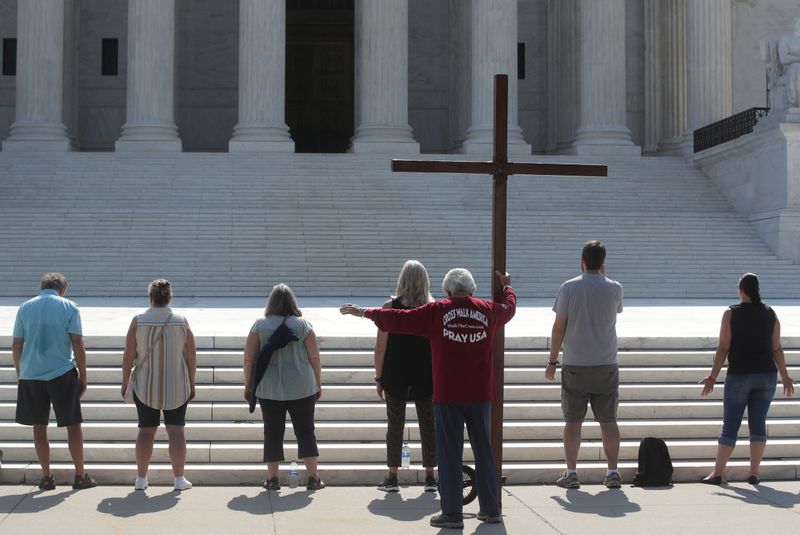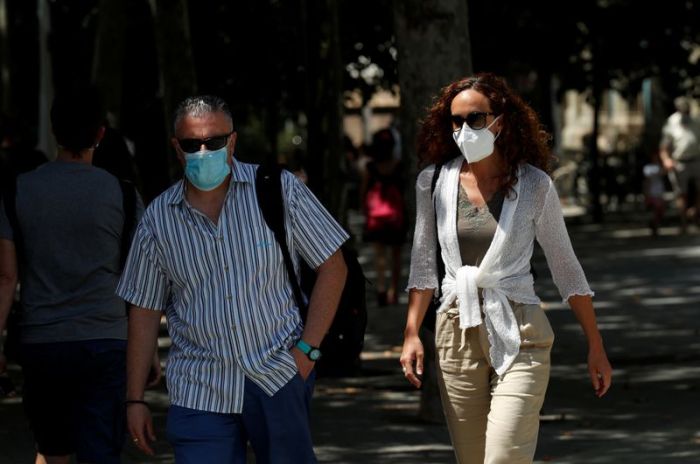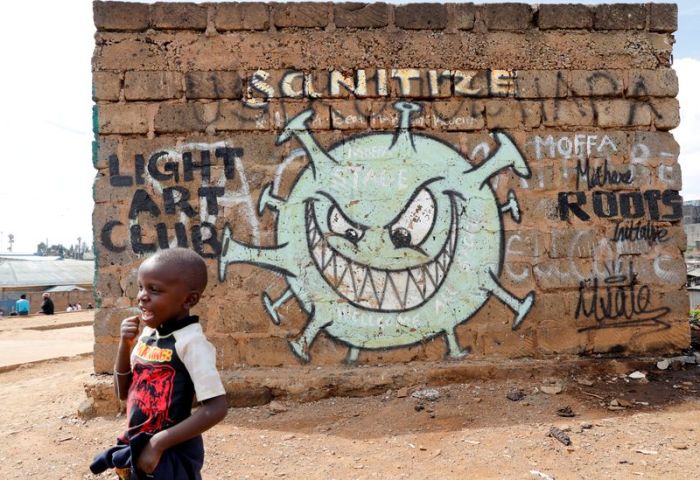WASHINGTON (Reuters) – The U.S. Supreme Court, siding with Catholic schools in a legal dispute with teachers who said they were unlawfully dismissed, ruled on Wednesday that religious institutions like churches and schools are shielded from employment discrimination lawsuits.
The 7-2 decision embraced a broad interpretation of the “ministerial exception,” a legal doctrine recognized by the Supreme Court in a 2012 case that bars ministers or people in similar roles from suing religious institutions for workplace bias. The court blocked two teachers from pursuing lawsuits accusing the two Catholic elementary schools in California of discrimination based upon age and disability.
Conservative Justice Samuel Alito, writing for the court, said there was “abundant” evidence that the two teachers performed “vital religious duties” and therefore fell under the ministerial exception.
“Educating and forming students in the Catholic faith lay at the core of the mission of the schools where they taught,” Alito wrote.
President Donald Trump’s administration sided with the schools. Christian conservatives are an important constituency for Trump, whose is seeking re-election on Nov. 3.
The ruling could strip more than 300,000 lay teachers working in religious schools of employment law protections and could impact industries including nurses in Catholic hospitals, according to the plaintiffs in the case.
In a dissent, liberal Justice Sonia Sotomayor said the decision had “no basis in law and strips thousands of schoolteachers of their legal protections.”
The teachers “taught primarily secular subjects, lacked substantial religious titles and training, and were not even required to be Catholic,” Sotomayor wrote in the dissent, which was joined by liberal Justice Ruth Bader Ginsburg.
The ruling was “a huge win for religious schools of all faith traditions” because it “reaffirmed that churches and synagogues, not government, control who teaches kids about God,” said Eric Rassbach, a lawyer at the Becket Fund for Religious Liberty who argued on behalf of the schools, in a statement.
At issue was the breadth of a “ministerial exception” that protects religious organizations from employee suits alleging violations of laws such as Title VII of the Civil Rights Act of 1964, which bars employers from discriminating against employees on grounds including sex, race, national origin and religion.
The ministerial exemption was grounded in the U.S. Constitution’s First Amendment guarantee of religious freedom, language meant to prevent government interference with religion.
The ruling arose from separate lawsuits brought by teachers Agnes Morrissey-Berru and Kristen Biel against two private schools that operate under the Roman Catholic Archdiocese of Los Angeles.
Biel accused St. James School in Torrance of unlawfully dismissing her when she requested time off to undergo surgery and chemotherapy for breast cancer. Biel died last year but her husband has continued the litigation on her behalf.
Morrissey-Berru brought an age discrimination case against Our Lady of Guadalupe School in Hermosa Beach after being told in 2015, just before her 65th birthday, that her contract would not be renewed.
Morrissey-Berru and Biel taught their students religion several days a week in addition to secular subjects.
Federal judges concluded that the ministerial exception barred both claims. The San Francisco-based 9th U.S. Circuit Court of Appeals subsequently ruled that both lawsuits could proceed.
Rachel Laser, president of the advocacy group Americans United for Separation of Church and State, said Wednesday’s ruling “demonstrates how the Supreme Court continues to redefine religious freedom – twisting what is meant to be a shield that protects us into a sword to harm others. The court elevates a distorted notion of religious freedom over fundamental civil rights.”
In a separate dispute affecting religious schools, the court on June 30 endorsed Montana tax credits that helped pay for students to attend religious schools, a decision paving the way for more public funding of faith-based institutions.
In another ruling on Wednesday, the Supreme Court endorsed a Trump administration plan to give employers broad religious and moral exemptions from a federal mandate that health insurance they provide to their workers includes coverage for women’s birth control.
(Reporting by Andrew Chung in New York and Jan Wolfe in Washington; Editing by Will Dunham)


























